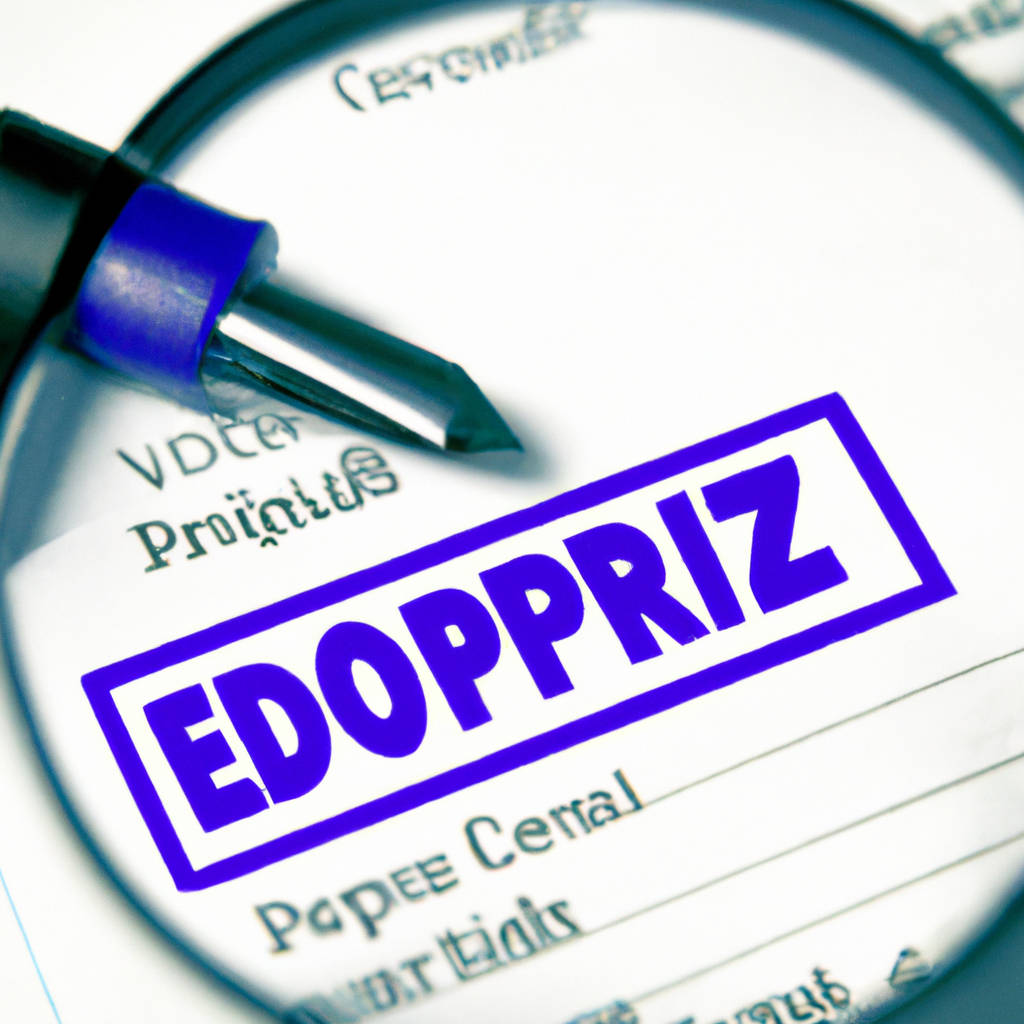The Family Educational Rights and Privacy Act (FERPA) is a federal legislation that protects the privacy of student education records. Violations of FERPA can occur in many different forms often due to lack of knowledge, negligence, or misunderstanding of the guidelines. One example is the unauthorized disclosure of personally identifiable information from a student’s record. This can happen when a school official discloses information to a third party without written consent from the student or if a teacher discusses a student’s academic performance in a public setting such as social media or in a conversation that can be overheard.
Another example is when schools release directory information without providing parents or eligible students the opportunity to opt out. Directory information can include a student’s name, address, telephone number, date and place of birth, honors and awards, and dates of attendance. Although FERPA allows schools to disclose such information without consent, they are required to notify parents and eligible students about directory information and allow them a reasonable amount of time to request that the school not disclose directory information about them.
Schools may also violate FERPA by failing to provide parents or eligible students with an opportunity to review and correct their education records. Under FERPA, schools are required to provide a process for parents and eligible students to review the records and request correction of inaccurate or misleading information. If a school fails to comply with this requirement, it can be considered a violation of FERPA.
In addition, using a student’s social security number as an identifier can be seen as a violation. Though this practice was once common, it is now largely discouraged due to the risk of identity theft. Now, schools typically use a unique student identification number to avoid this issue.
Moreover, a violation can occur when schools or educational institutions fail to train their staff about FERPA regulations. The faculty and staff who handle student records should be well-informed about the rules and regulations under FERPA to avoid any potential violations.
Sometimes, schools may violate FERPA by not having a written policy regarding the privacy of student records. Schools are required to have a written policy about who has access to student records and under what circumstances they can be accessed.
Lastly, a breach can happen when schools fail to secure electronic records properly. With the advancement of technology, many schools now keep electronic records. If the proper security measures are not in place, it can lead to unauthorized access to student records, which is a violation of FERPA.
In conclusion, the examples of FERPA violations are diverse and can occur in various forms. It is crucial for schools to understand and comply with FERPA regulations to protect the privacy of student records and avoid any potential violations.

Improper Disclosure of Student Grades
The improper disclosure of student grades is a breach of fundamental ethical standards within the education sector. This transgression infringes upon the privacy rights of students, inflicting potential emotional distress, embarrassment, or harm to their academic reputation. In many educational institutions, the practice of disclosing grades publicly or without the explicit consent of the student is deemed unacceptable.
This is primarily due to the sensitive nature of this information, which if mishandled, can lead to undesirable consequences such as peer discrimination, bullying, or other forms of social stigma. Such an act can also diminish mutual trust between students and academic institutions, thereby affecting the overall teaching-learning environment. The disclosure of student grades should be conducted in a discreet and respectful manner, ensuring that the information is communicated directly to the individual concerned or their legal guardians when applicable. The utilization of secure digital platforms for grade disclosures, instead of traditional public methods, is one step towards safeguarding student privacy.
Therefore, it is crucial that educational institutions strictly adhere to privacy policies and guidelines, fostering an environment that respects student rights and promotes fair academic practices. Students should be informed about these policies and encouraged to report any instances of unauthorized grade disclosure. Moreover, educators should be trained to handle students’ academic records with utmost confidentiality, reinforcing the professional integrity of their role. In conclusion, the improper disclosure of student grades is a serious issue that necessitates stringent measures to prevent its occurrence and ensure the protection of student privacy.
Posting Grades Publicly
Posting grades publicly is a topic that has been subject to extensive debate within the educational community. On one side, there are those who argue that the practice helps to foster a sense of accountability among students, motivating them to work harder and achieve better results. They also claim that it allows parents and guardians to stay informed about their child’s academic progress, enabling them to provide necessary support or intervention where needed.
Contrarily, opponents of public grade disclosure contend that it can create an unhealthy competitive environment among students, which can potentially lead to stress, anxiety, and other mental health issues. They argue that academic performance is a personal matter and that making it public can infringe on a student’s privacy. They also point out that it can lead to a damaging comparison culture, where students judge their worth based on their grades, rather than their personal growth or development.
Additionally, critics opine that public grade posting may not accurately reflect a student’s knowledge or understanding of a subject, as grades are not always a perfect measure of a student’s ability or potential. They argue that some students might excel in areas that are not reflected in traditional grading systems, such as creativity, critical thinking, or leadership skills.
Furthermore, there are concerns that public grade posting can inadvertently contribute to educational inequalities. Students from disadvantaged backgrounds, who might not have access to the same resources or support as their peers, could potentially be stigmatized or marginalized as a result of their grades being publicly displayed.
In conclusion, the practice of posting grades publicly is a complex issue with valid arguments on both sides. While it can potentially motivate students and keep parents informed, it also runs the risk of creating an overly competitive environment, infringing on student privacy, and perpetuating educational inequalities. It is therefore crucial for educational institutions to carefully consider the potential implications before adopting such a practice.

Unauthorized Access to Student Records
Unauthorized access to student records is a serious violation of privacy and confidentiality that could have far-reaching consequences. This act, often facilitated by hacking, encompasses the unauthorized viewing, retrieval, use, or sharing of sensitive information. Such information includes personal details, academic grades, financial information, and health records – all of which are meant to be confidential between the student, the institution, and other authorized parties.
When unauthorized individuals gain access to these records, it exposes students to a range of risks such as identity theft, cyberbullying, academic fraud, and other forms of exploitation. It could also lead to the spread of false information and damage a student’s reputation or academic standing. Furthermore, it undermines trust in educational institutions and their ability to safeguard sensitive information.
Institutions must adopt robust cybersecurity measures to prevent unauthorized access. This includes the use of advanced encryption methods, regular system updates, and strong password policies. Educating staff and students about the importance of data security and the potential risks associated with unauthorized access is also crucial. Additionally, institutions should have a response plan in place to quickly address any breaches and minimize the potential harm to students.
While technology has made education more accessible and efficient, it has also increased vulnerabilities to data breaches. Therefore, achieving a balance between technological innovation and data security is essential. Despite the challenges, protecting student records from unauthorized access is not just a matter of ethics, but also a necessity for maintaining the integrity of educational systems.
In conclusion, unauthorized access to student records is a significant issue that requires ongoing attention from educational institutions, students, and all stakeholders involved. By prioritizing data security and continuously improving preventive measures, we can help ensure the privacy and safety of students’ sensitive information.
Discussing Student Information in Public Areas
Discussing student information in public areas is a topic that raises various issues relating to confidentiality, respect, and ethics. When educators or school administrators share sensitive details about a student’s performance, behavior, or personal circumstances in public spaces, they risk violating that student’s right to privacy. This disregard for discretion can lead to harmful consequences, such as embarrassment, stigmatization, or even bullying.
This issue extends beyond physical spaces such as school hallways and teachers’ lounges, as the digital era has introduced new platforms for potential indiscretion. Social media and email, although seemingly private, can become public areas if messages are shared or screens are viewed. It’s crucial that all school staff understand the importance of maintaining privacy when discussing student information. Guidelines should be put in place to promote respectful conversations about students and to avoid inadvertent sharing of sensitive information.
Additionally, training can be provided to educators on how to navigate conversations about students in a way that respects their privacy. Apart from the ethical standpoint, it’s also important to note that discussing student information in public may damage the trust relationship between students, parents, and educators. It’s not just about keeping information confidential, it’s about creating a safe, respectful educational environment. In summary, discussing student information in public areas is a multifaceted issue that requires thoughtful attention and careful handling to ensure the protection of student privacy and the promotion of a healthy, respectful learning environment.

Emailing Student Information to Incorrect Recipients
Emailing student information to incorrect recipients is a serious issue that poses a significant threat to the privacy and security of students. It can lead to unauthorized access to sensitive details, including names, addresses, academic records, and other personally identifiable information. This can potentially result in identity theft, fraud, and other forms of exploitation. Furthermore, it could also lead to psychological distress for the student and their family, knowing that their personal information has been exposed to an unintended audience.
Schools, universities, and educational institutions must, therefore, take adequate measures to ensure data privacy. They should have stringent policies and advanced technological systems to prevent such mishaps. Regular training for staff members on data protection protocols and secure emailing practices is also crucial. These practices should include double-checking email addresses before sending sensitive information and using secure, encrypted email services. In case of a data breach, the institution should promptly inform the student and their family, and take immediate action to mitigate the potential harm. This issue underscores the importance of data privacy and the need for robust protocols to prevent unauthorized access to student information.
Using Student Information for Non-Educational Purposes
Utilizing student information for non-educational purposes is a topic that has raised numerous eyebrows and sparked considerable debate. The crux of the issue lies in the potentially intrusive nature of using personal data for purposes that are not directly linked to the students’ academic pursuits or well-being. When an educational institution collects data from its students, be it their personal contact information, their academic records or their extracurricular interests, the students trust that their information will be used solely for the betterment of their educational experience.
However, when this information is used for other purposes, such as marketing or research, it could infringe upon the privacy of the students and could lead to mistrust in the institution. Furthermore, it may lead to students being targeted by unscrupulous entities who might exploit their data for profit. It is therefore important for educational institutions to be transparent about their data collection and usage policies, and to ensure that they are not using student information for purposes beyond the realm of education.
It is crucial for the integrity of the institution and the trust of the students that these policies are adhered to stringently and that the sanctity of the students’ personal information is maintained. It is also essential to remember that the students themselves have rights over their information and should be able to control how it is used, especially when it is being used for non-educational purposes. In conclusion, while the use of student information can have numerous benefits in the educational setting, using it for non-educational purposes can lead to potential harm and mistrust, and should therefore be approached with caution.
